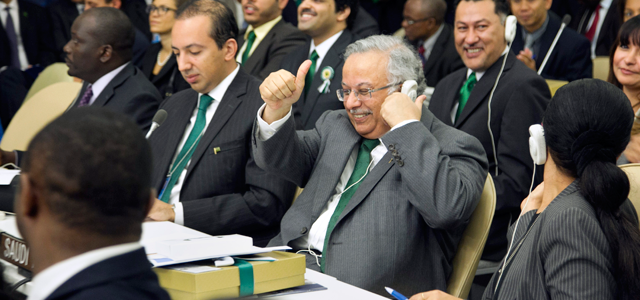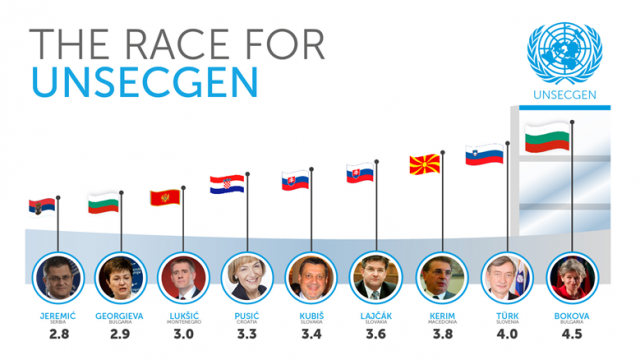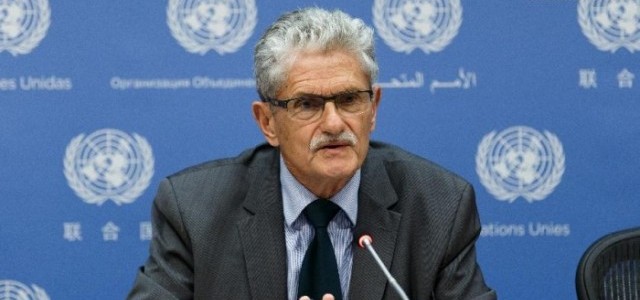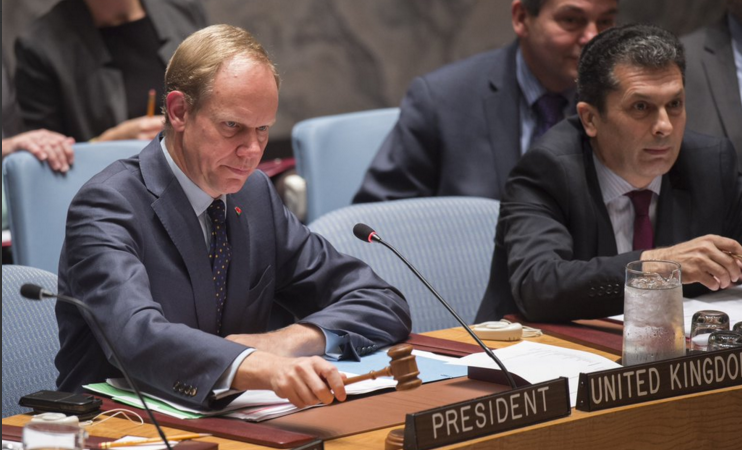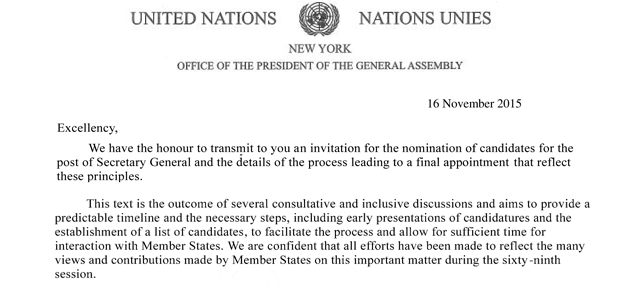This morning, Security Council watchers were left “baffled, perplexed, puzzled, and scratching their heads” with the annoucment of Saudi Arabia’ rejection of the seat which it won easily less than 24 hours earlier.
The Kingdom was the sole candidate for the Asian-Pacific regional seat and was elected along with Chad, Nigeria, Lithuania and Chile to a year term starting on 1 January 2014. But this morning, the Saudi foreign ministry issued a statement in which it stated
“…its apology for not accepting membership of the Security Council until the Council is reformed and enabled, effectively and practically, to carry out its duties and responsibilities in maintaining international peace and security.”
The reasoning behind the abrupt and unprecedented decision appears to stem from frustration by the Saudi government over the failure of the Security Council to deal with Syrian president Assad’s use of chemical weapons and its inability to effective address the Israeli/Palenstinian and other Middle East conflicts. The frustration has grown beyond their traditional targets of China and Russia to include also the United States as well.
“The manner, the mechanisms of action and double standards existing in the Security Council prevent it from performing its duties and assuming its responsibilities toward preserving international peace and security as required.”
The decision seems to have come from the very top. Saudi journalist Ahmed al Omran reported that it came from the Foreign Ministry in Riyadh and that the “Saudi Mission to UN seemed unaware of the decision.” Several UN watchers commented on the preparations which the Saudi diplomats were undertaking in anticipation of their securing the seat, even taking courses at Columbia University.
In response to news reports of the kingdom’s decision, the Secretary General commented that
Membership in the Security Council is a decision by Member States. I have taken note of the media reports regarding the decision of Saudi Arabia. But I would like to caution that I have not received any official notification in this regard. I encourage all Member States to fully engage with the principal organs of the United Nations while advancing their efforts to improve their working methods.
The Saudi mission to the United States issues an official statement shortly afterwards.
Mark Goldberg at UNDispatch calls Saudi Arabia’s decision “a huge mistake,” noting that it is in effect “giving up its ability to influence the very body it wants to see reformed” and commenting that
“If Saudi Arabia was really concerned about Security Council reform, it could have used its presidency to hold a meeting (or several!) on the subject, and force every council member to come to the table with a statement. Instead, it is relegated to complaining about the Council on the sidelines.”
Others are not so sure that the decision is a bad one. David Bosco, who writes the Multilateralist blog at ForeignPolicy.com suggests Saudi Arabia is engaging in “civil disobedience.” The outcome could be “an odd historical footnote in the Council’s history [or] it could also presage a broader strategy on the part of UN members for effecting change in the Council’s membership and methods. ” Bosco has argued that reform of the Council could be forced by a refusal of General Assembly members to elect any non-permanent members. Carne Ross, founder of a diplomatic advisory service, has argued that a boycott by non-perm members was the only way to get their permanent colleages to agree to Council reform.
So what happens now?
Delegates of other missions and UN observers believe this is the first time that a government elected to the Council has rejected a seat. If it is a boycott, as occurred with the Soviets in the 1950s, handling it will be a different matter. But if it is a complete abdication of the seat, filling it will be a process which has never before been necessary. There is nothing in the UN Charter on the Council’s rules of procedures for filling a vacancy or how to address a government’s refusal to be a voting member.
Hayes Brown, at ThinkProgress, notes that the rules of the General Assembly may provide the only guidance for the institution.
Rule 140 – Should a member cease to belong to a Council before its term of office expires, a by-election shall be held separately at the next session of the General Assembly to elect a member for the unexpired term.
Should Saudi Arabia not change its mind by September 2014 when the next General Assembly sessions convenes, Brown writes, the body could elect another government for the seat through the end of 2015. If the kingdom does hold out and the General Assembly exercises this rule, the likely candidate to replace Saudi Arabia will be another Arab state within the Asian regional group.
Most candidates for the Council announce years in advance in order to prep their diplomatic staff for the more high profile responsibilities that come with Council membership. The most recent Arab Asian states which have served on the Council include Lebanon (2010-11) and Qatar (2006-07), either of which may be able to step in without much remedial prep work.

